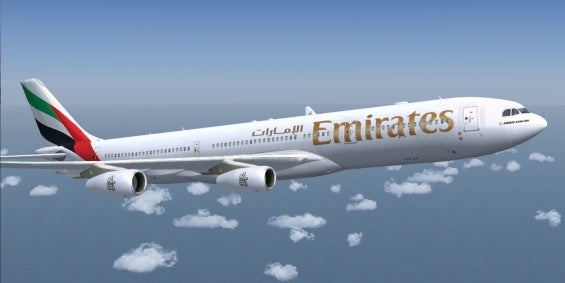Press Releases
U.S. Airlines, Unions Reveal Evidence Of $42 Billion In Subsidies And Benefits by Qatar And The UAE To Their State-Owned Carriers

WASHINGTON, D.C. – A newly released 55-page white paper documents $42 billion in government subsidies and unfair benefits provided to Qatar Airways, Etihad Airways and Emirates Airline in direct violation of U.S. Open Skies policy. The paper, Restoring Open Skies: The Need to Address Subsidized Competition from State-Owned Airlines in Qatar and the UAE, was released today by American Airlines, Delta Air Lines and United Airlines, along with the Air Line Pilots Association, Int’l, the Allied Pilots Association, the Association of Professional Flight Attendants and the Airline Division of the International Brotherhood of Teamsters.
The three U.S. airlines and labor organizations also announced the launch of a new coalition, the Partnership for Open & Fair Skies, dedicated to restoring a level playing field to international air travel. The Partnership supports U.S. Open Skies policy and the airline members recently presented the white paper to the U.S. government, calling on the Obama Administration to open consultations under the Open Skies agreements with Qatar and the United Arab Emirates to address the flow of subsidized capacity to the United States, and requesting a freeze on new passenger service during the consultations.
Evidence gathered during a global two-year investigation and documented in the report shows that Qatar Airways, Etihad Airways and Emirates have received $42 billion in quantifiable subsidies and other unfair benefits from their respective governments since 2004. The white paper uses the globally accepted definition of subsidy as established by the World Trade Organization and agreed to by all 160 WTO members, including Qatar and the UAE.
“We welcome competition with all international carriers and are in strong support of Open Skies, which has provided wide benefits to the global economy and millions of Americans,” said Richard Anderson, CEO of Delta Air Lines. “However, the subsidies provided by the governments of Qatar and the United Arab Emirates undermine the true spirit of Open Skies and distort the international aviation market.”
Every international roundtrip flight that is foregone or lost by U.S. airlines due to unfair competition with these three massively subsidized state-owned carriers results in an average net loss of more than 800 U.S. jobs. Qatar Airways, Etihad Airways and Emirates have indicated they plan to expand rapidly into the U.S. market. U.S. airlines support 11 million American jobs and $1.5 trillion in nationwide economic activity.
“When the United States created Open Skies agreements more than 30 years ago, they were built on the principle of fair competition in the marketplace,” said Capt. Tim Canoll, president of the Air Line Pilots Association. “The economic disadvantages with which U.S. airlines currently do business in certain markets runs counter to the foundational premise of our Open Skies policy.”
The multi-billion dollar subsidies – including interest-free “loans” with no repayment obligation, government assumption of fuel-hedging losses, subsidized airport charges, free land, and more – have allowed Qatar Airways, Etihad Airways and Emirates to rapidly expand their fleets and international routes, distorting the commercial marketplace to the severe detriment of U.S. employment, the U.S. economy and the U.S. airline industry.
“We believe these Gulf airlines are playing from the higher side of an uneven playing field, posing a serious threat to American jobs and the long-term viability of our nation’s carriers,” said Capt. Keith Wilson, president of the Allied Pilots Association.
American, Delta and United characterize the issue as critically important to their companies, their more than 250,000 employees and the U.S. economy more broadly.
“The U.S. industry can and will compete vigorously with any carrier,” said Doug Parker, chairman and CEO of American Airlines. “We welcome an open global marketplace that drives innovation and service. But the playing field must be level, or U.S. airline jobs will be lost to airlines that are subsidized by their governments.”
The Open Skies agreements with Qatar and the United Arab Emirates, signed in 2001 and 2002, respectively, permit the United States to request consultations relating to the agreements at any time. In this case, the process would provide a forum to review the airlines’ claims that they operate without state financial support.
“To ensure open and fair competition, we have started a discussion with U.S. government officials about these subsidies and their effect,” said Jeff Smisek, chairman, president and CEO of United Airlines. “Each of the these carriers have repeatedly denied they receive subsidies. We invite them to come into a consultation process with a full and transparent review of their financial statements.
Airline employees agreed on the need to directly address the massive subsidies.
“Flight attendants have worked hard to put our companies in a position to compete globally,” said Laura Glading, national president of the Association of Professional Flight Attendants. “I believe U.S. airlines can go toe-to-toe with any airline in the world but I do not think we can keep up with the governments of oil-rich Gulf nations. Something needs to change to ensure fair competition.”
“These airlines aren’t playing by the rules,” added Capt. David Bourne, Airline Division Director for the International Brotherhood of Teamsters. “The U.S. government needs to take action on behalf of the hundreds of thousands of U.S. airline industry employees whose jobs will be in jeopardy if these unfair practices are allowed to continue.”
More information on the issue, as well as the white paper, may be found on the Partnership’s website, www.openandfairskies.com.